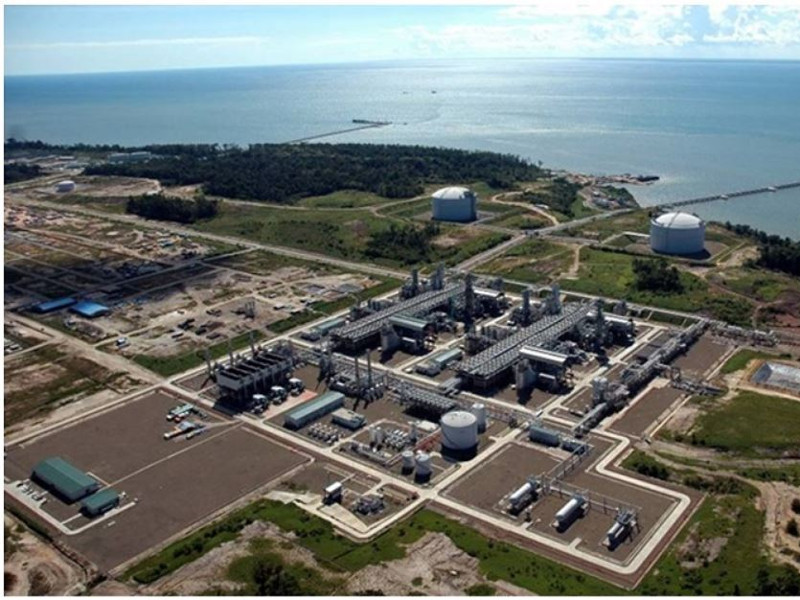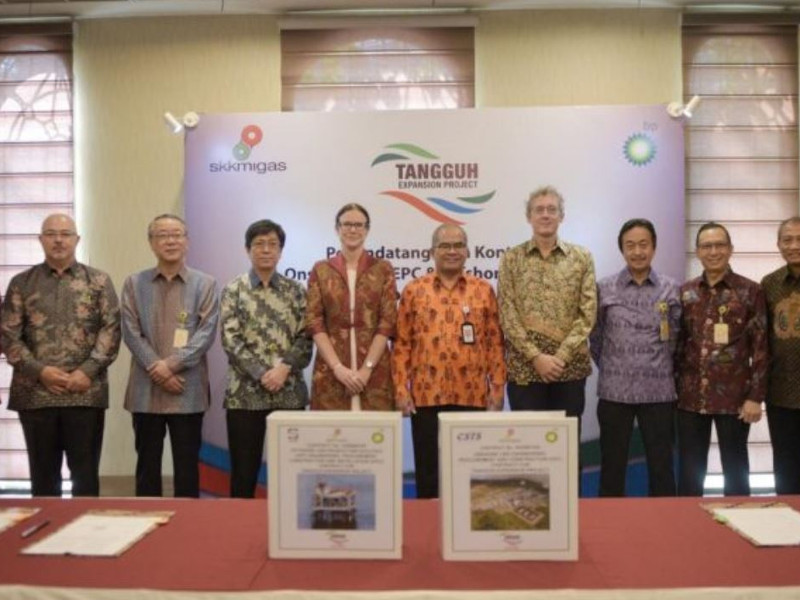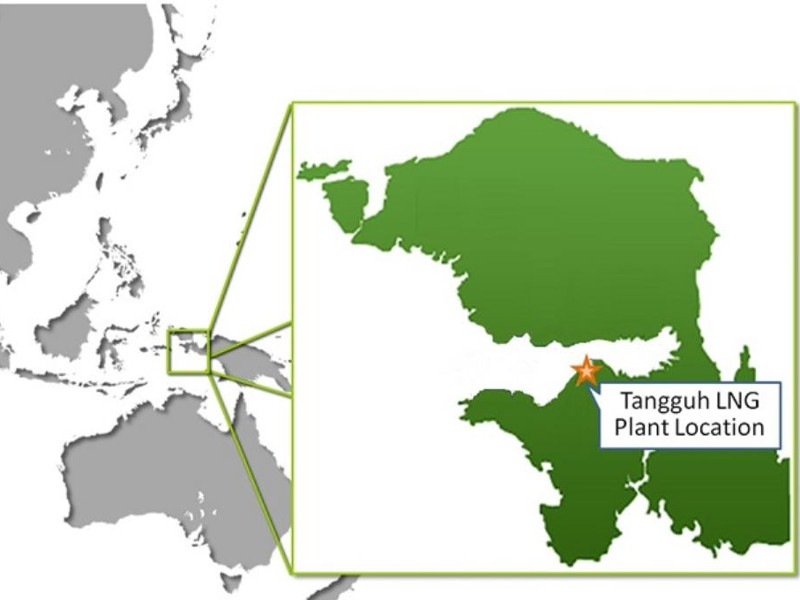The Tangguh LNG facility located near Bintuni Bay, Teluk Bintuni Regency, Papua Barat Province, Indonesia, is being expanded to increase its production capacity to 11.4 million tonnes per annum (Mtpa).
The £5.6bn ($8bn) Tangguh expansion project involves additional offshore production facilities and a 3.8Mtpa new LNG processing train at the existing Tangguh LNG terminal.
The project development plan for the Tangguh expansion was granted by the Indonesian Government in 2012, while the final investment decision (FID) on the project was reached in June 2016.
Construction works on the expansion project have been underway since late-2016 and are scheduled to be completed in 2020.
Project Gallery
-

The Tangguh LNG expansion project is expected to commence production in 2020. Image courtesy of Mitsubishi Corporation.
-

Saipem received the offshore EPCI contract for the project in July 2016. Image courtesy of BP.
-

The Tangguh expansion project is located in the Papua Barat Province of Indonesia. Image courtesy of Sumito Corporation.
Tangguh LNG ownership
The Tangguh project is operated by BP Berau, which holds a 37.16% stake. The other partners of the Tangguh production sharing contract (PSC) are MI Berau (16.3%), CNOOC Muturi (13.9%), Nippon Oil Exploration (12.23%), KG Berau Petroleum and KG Wiriagar Petroleum (10%), Indonesia Natural Gas Resources Muturi (7.35%), and Talisman Wiriagar Overseas (3.06%).
Tangguh LNG project details
The Tangguh LNG project is based on the development of six offshore fields including Vorwata, Wiriagar Deep, Ofaweri, Roabiba, Ubadari, and Wos.
The existing gas production facilities for the project include 14 production wells and two offshore platforms named VR-A and VR-B on the Vorwata gas field.
The produced natural gas is sent to the LNG processing plant onshore through two 24in-diameter subsea pipelines. One of the pipelines is 22km-long, while the other pipeline is 15km-long.
The existing LNG processing facility is developed with two 3.8Mtpa LNG trains, a marine loading facility for export via LNG tankers, and associated supporting infrastructure.
The Tangguh LNG facility has been in operation since 2009.
Tangguh expansion project details
The Tangguh LNG expansion project involves the integrated development of 13 new production wells, two new offshore production platforms, and the third 3.8Mtpa LNG train at the existing onshore LNG processing facility.
It also involves new subsea pipelines, a new enhanced onshore receiving facility, a condensate stabiliser column, and a condensate product cooler.
A bulk offloading jetty is being developed to accommodate a new LNG loading berth and a new condensate loading berth. The third LNG train is designed to process gas flow at a rate of 808t/h.
Other infrastructure facilities being developed as part of the project include LNG and condensate storage tanks, new water and power supply systems, a wastewater treatment facility, and offices and accommodation facilities.
Financing
The Tangguh production sharing partners signed loan agreements worth £2.82bn ($3.745bn) with a group of Indonesian and international banks in August 2016.
The Indonesian banks supporting the expansion project are Bank Negara Indonesia (BNI), Indonesia Infrastructure Finance (IIF), Bank Mandiri, and Bank Rakyat Indonesia (BRI).
The international financiers for the project are Mizuho Bank, Sumitomo Mitsui Banking Corporation (SMBC), Shinsei Bank, Oversea-Chinese Banking Corporation (OCBC), United Overseas Bank (UOB), China Construction Bank (CCB), Credit Agricole, KfW, Korea Development Bank (KDB), Shinsei Bank, and DBS Bank.
LNG off-take
Indonesian state electricity company PT. PLN (Persero) will purchase 75% of the LNG produced by the Tangguh expansion project, while the remaining LNG output of the project will be supplied to Kansai Electric Power Company in Japan.
Contractors involved
CSTS, a consortium of Chiyoda, Saipem, Tripatra, and Suluh Ardhi Engineering, was awarded the engineering, procurement and construction (EPC) contract for the construction of the third LNG process train, LNG jetty, and associated infrastructure for the Tangguh expansion project in July 2016.
The onshore front-end engineering and design (FEED) contract for the Tangguh expansion project was awarded to a consortium comprising KBR, JGC Corporation, PT JGC Indonesia, and PT Rekayasa Industri in October 2014.
Saipem was awarded the offshore engineering, procurement, construction, and installation (EPCI) contract for two unmanned platforms and subsea pipelines for the expansion project.
